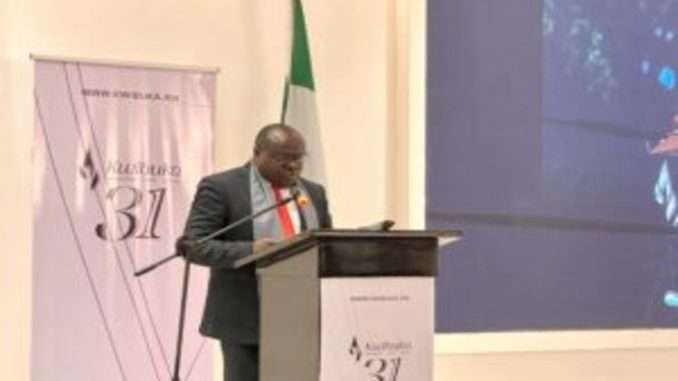
Rwandan High Commissioner to Nigeria, Christophe Bazivamo, has called on the global community to collectively address the menace of hate speech and genocide ideologies, which could trigger devastating genocidal conflicts.
Bazivamo stated this at the 31st commemoration of the 1994 Rwandan genocide in Abuja, with the theme: “Remember-Unite-Renew.”
He warned that ignoring the red flags of hate speech and genocide ideologies, or failure to address them, could lead to a tragic repetition of history.
The High Commissioner stressed that vigilance and proactive measures were crucial to combating narratives that incited division and violence.
Reflecting on the 1994 Rwandan genocide, which resulted in the loss of over a million lives, Bazivamo said the world must learn from the past to prevent similar atrocities in the future.
9News Nigeria reports that part of his statement were; “The scars of genocide run deep and linger long after the dust has settled. “We must recognise that hate speech does not manifest in isolation.
“It germinates from ideologies that seek to dehumanise and divide, ultimately paving the way for violence,” he said.
He noted that current rising global polarisation and the weaponisation of digital platforms spread hateful narratives reminiscent of the environment that led to the Rwandan genocide.
The envoy, therefore, called for urgent collective global action to curb the menace of hate speech and genocide ideologies.
“This is not just Rwanda’s fight; it is a challenge that demands the attention and concerted effort of the entire international community,” he emphasised.
Bazivamo further called for a renewed commitment to the principles enshrined in international human rights treaties, including the 1948 UN Genocide Convention.
He therefore urged nation-states to not actively combat genocide ideologies but also fulfill their obligations to prevent hate-driven violence.
The High Commissioner also expressed concern over the existence of denialism and revisionism surrounding the events of the genocide.
According to him, such narratives perpetuate hatred and undermine Rwanda’s ongoing efforts toward healing and reconciliation.
Bazivamo therefore encouraged all stakeholders, governments, civil society, and individuals to engage in open dialogue, promote education on the dangers of hate speech, and uphold the values of truth and justice.
“As we gather today to remember the victims, let us also commit to being vigilant against divisive ideologies that threaten our humanity.
“We must ensure that ‘Never Again’ is not merely a slogan, but also a principle that guides our actions,” he said.










